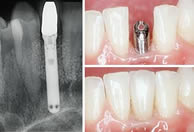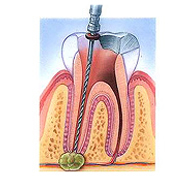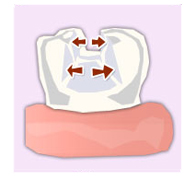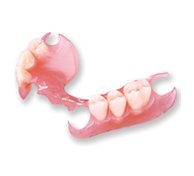Crowns

Crowns are used to strengthen and improve the shape, size or color of teeth. They can support broken or weak teeth or those with large fillings; provide a smooth, strong, attractively contoured surface for stained, misshapen or otherwise abnormal teeth; and aid in the implantation of bridges and other implants. These crowns can be bonded or cemented to the original tooth and can also be used as implants or as part of bridges. All these crowns are metal free, and made of stronger porcelain, offering a more esthetic look.
Implants

A dental implant is an artificial tooth root that an oral surgeon or periodontist places into your jaw to hold a replacement tooth or bridge. Dental Implants are so natural-looking and feeling, you may forget you ever lost a tooth. They are teeth that can look and feel just like your own.
Bridges

Bridges are natural-looking tooth replacements which help maintain facial structure, reduce stress on the jaw and fill in the gaps caused by missing teeth. They can also reduce your risk of gum disease, restore your ability to bite and chew and improve your speech. Fixed bridges are cemented to the existing teeth and do not come out. Removable bridges can be taken out and cleaned at home.
Root Canal

Root canals can prevent tooth loss when there is damage to the soft core of the tooth (the pulp). Despite its reputation as a painful ordeal, a root canal is actually not very uncomfortable. During the procedure, the damaged pulp is removed, the root canal is cleaned and sealed off, and a crown is bonded to the tooth to maintain strength.
Composite Filling

Composite fillings are preferred by most dentist over the traditional amalgam (silver) fillings for many reasons. Amalgam fillings have been the center of controversy, when it comes to their mercury content, for years. On rare occasions, some people have even had allergic reactions to these fillings, where as with resin fillings, there are no metallic elements. In addition, composite fillings require less tooth structure to be removed during tooth preparation, many times resulting in smaller fillings.
Partial and Complete Dentures

Patients who have lost their natural teeth due to decay, periodontal disease or injury can suffer from related problems including further decay, difficulty eating and speaking, and drooping of facial muscles. Full and partial dentures replace the missing teeth both aesthetically and functionally, providing support and restoring the smile. Full (complete) dentures are used when all of the natural teeth have been lost, while partial dentures fill in the gaps between natural teeth. The gums, dentures and any remaining natural teeth will need to be cleaned regularly to prevent staining, sores and plaque build-up.
Valplast® partial dentures

Valplast® partial dentures are flexible but strong removable dentures that provide a comfortable feel and natural look with no metal involved. Valplast dentures adapt to the constant movement of your mouth while offering the strength and reliability of natural teeth. The fitting procedure is simple and noninvasive, and can be adjusted for more teeth in the future.
Denture Comfort™

Denture Comfort™ is a proven, industry standard procedure that works with either new or current denture wearers. While dentures certainly bring many life-changing benefits, almost all denture-wearers find that problems do occur. We now offer this new technology that’s affordable and can put an end to all your denture problems in a one-hour procedure. There’s no reason to suffer from these denture troubles any longer.
